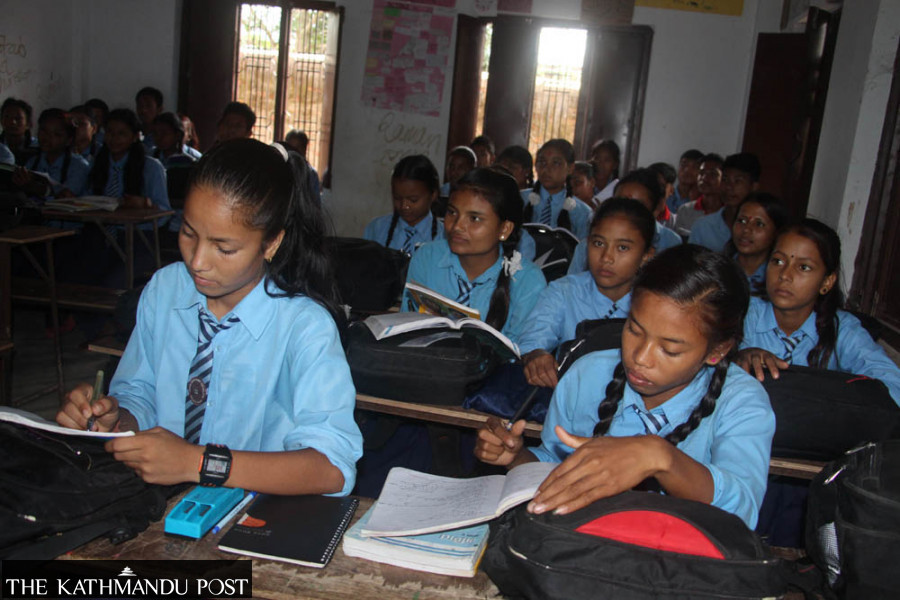National
Federal bill proposes reviving the district education offices
To stop commercialisation of school education, the new legislation suggests converting private schools into trusts.
Binod Ghimire
The federal education bill envisions reviving the District Education Offices that were scrapped with the promulgation of the constitution in 2015. The new charter institutionalised federalism and ended the existence of districts as administrative units.
The bill endorsed by the Cabinet on Tuesday says there will be such offices with the role to boost the quality of education, maintain records, and carry out school mapping, among other activities. The DEOs were reduced to small education units after the Local Governance Act, prepared based on the constitution, came into force in 2017.
Clause 27 of the bill, which is yet to be registered in Parliament, also envisions conducting national level board exams only at the end of grade 12. “The National Examination Board will hold the grade 12 tests. The exams at the end of grade 10 will be conducted by respective provincial boards,” reads the bill. There will be no centrally held Secondary Education Examinations once the bill gets Parliament’s green signal.
It authorises local governments to hold the tests for grade 8.
The local units, however, have stood against the bill’s provisions, claiming that they contradict the constitution and breach their jurisdiction. “The constitution gives explicit authority to the local governments to manage education up to the twelfth grade. There are no ‘ifs’ or ‘buts’ about this. The federal government cannot prepare any bill that goes against the constitution,” Laxmi Devi Pande, chair of the National Association of Rural Municipalities in Nepal, told the Post. How can the DEOs be revived when the constitution recognises no administrative units like districts, she asked.
Pande, who also is the chairperson of Hupsekot Rural Municipality in Nawalpur district, said the local governments will challenge the bill on multiple fronts once it lands in Parliament.
The local governments had been claiming that the federal government had delayed the legislation as it was unwilling to delegate the authority to them as envisioned in the statute. Schedule 8 of the constitution gives local governments explicit authority over basic and secondary education while schedule 9 puts education under the concurrent authority of the federal, provincial and local governments.
It took almost eight years since the promulgation of the statute to prepare the federal education bill, which is a must for the full-fledged implementation of federalism.
As Pande argues, education experts also see the provision to revive the DEOs as regressive. “Reviving District Education Offices isn’t in line with the federal constitution. The authority delegated to these offices could have been transferred to the provinces,” Bal Chandra Luitel, a professor at Kathmandu University, told the Post.
The powers to transfer teachers, formulate local legislation based on the federal law, grant permits to set up new schools or close existing ones, however, lie with the local governments, as per the bill.
Amid allegations that schoolteachers indulge in party politics, the bill puts a complete ban on their involvement in party politics. Teachers breaching the law could lose their job.
In an attempt to stop the commercialisation of school education, the new legislation proposes converting private schools into trusts. Clause 4 (3) makes it mandatory to convert existing private schools registered under the Company Act as trusts within five years.
The High Level Education Commission in 2019 had recommended converting private schools into trusts within 10 years. The report, prepared during the tenure of then-prime minister KP Sharma Oli and which the private school operators had strongly resisted, was never made public.
The new bill will first be registered in Parliament where it will be discussed before lawmakers can file amendments to it. It has to pass both chambers of the federal parliament before it becomes the law and replaces the Education Act-1974.




 12.12°C Kathmandu
12.12°C Kathmandu















